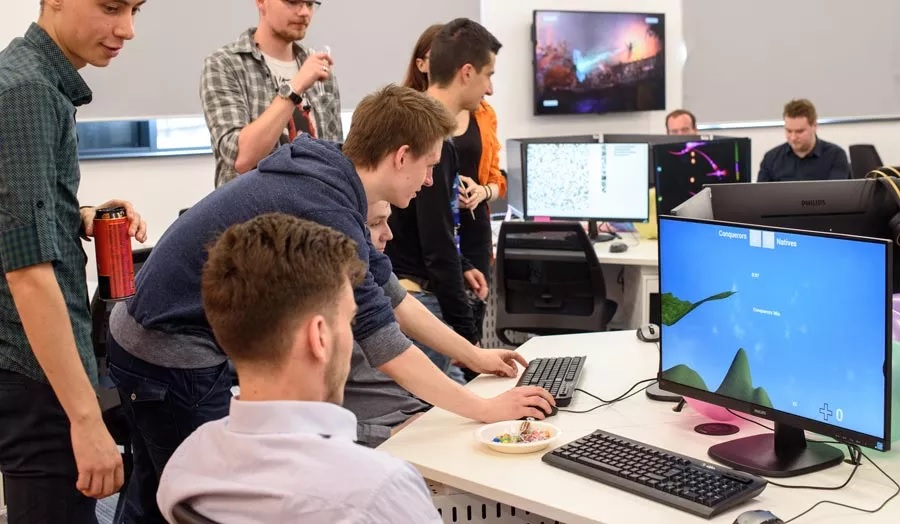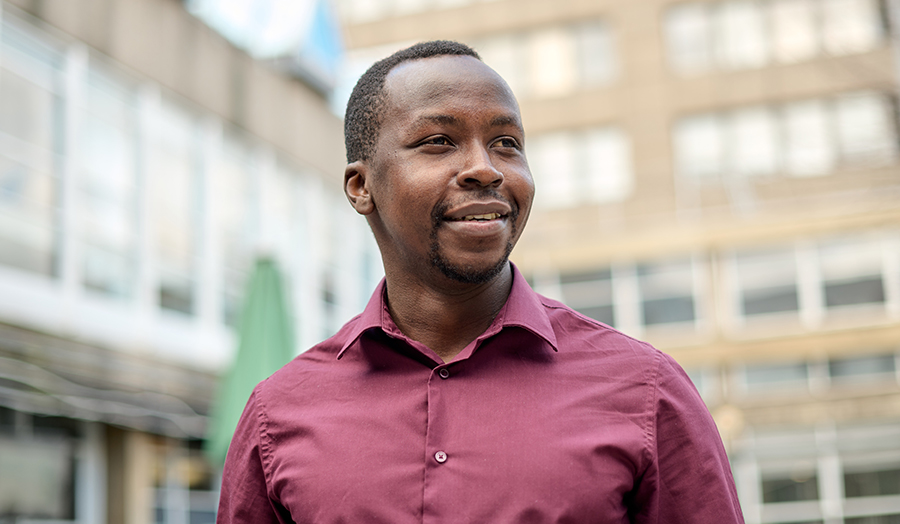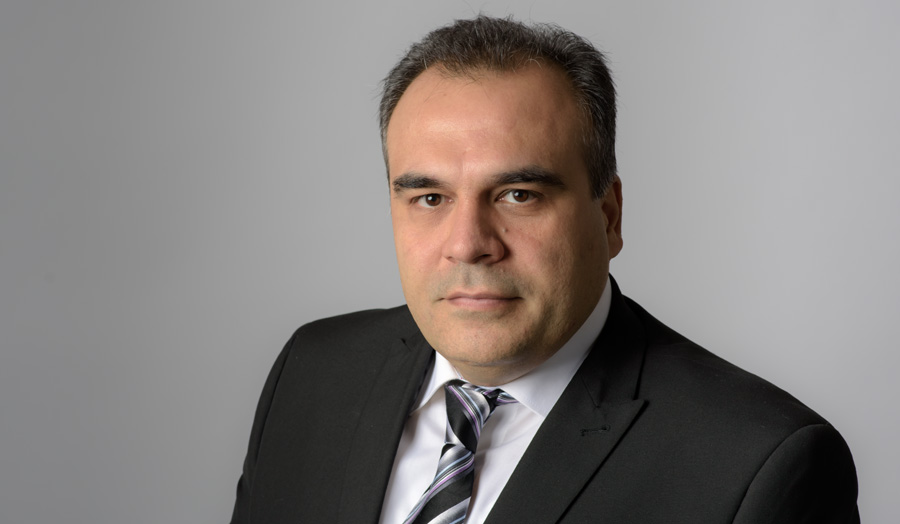Apply for this course
Please select when you would like to start:
This course is subject to validation.
If you're a UK applicant wanting to study full-time starting in September, you must apply via UCAS unless otherwise specified. If you're an international applicant wanting to study full-time, you can choose to apply via UCAS or directly to the University.
If you're applying for part-time study, you should apply directly to the University. If you require a Student visa, please be aware that you will not be able to study as a part-time student at undergraduate level.
Why study this course?
Biomedical engineering is an extremely varied and dynamic line of work. The field of biomedical engineering spans a range of different sectors, including healthcare, robotics, diagnostics, pharmaceuticals and more. The BEng (Hons) in Biomedical Engineering is designed to prepare students wishing to work in any area of this diverse and ever-growing industry.
On completion of your degree, you will be well prepared to work confidently in various entry-level roles within biomedical engineering. These include job roles in assistive technology, rehabilitation, medical imaging, physiological monitoring, robotics and more.
Our Biomedical Engineering BEng (Hons) places strong emphasis on enhancing the employability of students, integrating opportunities for learners to develop transferable real-world skills and expertise. As a result, graduates will leave their studies with versatile skills and knowledge that can be applied to various industries.
Gain a highly sought-after qualification in a diverse and ever-growing industry
Start your career in assistive technology, rehabilitation, medical imaging or follow one of many other exciting career paths
Learn through industry-standard facilities
You'll have access to engineering modelling, CAD tools, manufacturing laboratories and more
Benefit from our highly qualified teaching staff
Learn from our staff members with years of experience as well as special guest lecturers who are experts in this field
Course details
In addition to the University's standard entry requirements, you should have:
- A minimum of 88 UCAS points
- GCSE qualifications in both English Language and Mathematics at grade C/4 or above
Accreditation of Prior Learning
Any university-level qualifications or relevant experience you gain prior to starting university could count towards your course at London Met. Find out more about applying for Accreditation of Prior Learning (APL).
English language requirements
To study a degree at London Met, you must be able to demonstrate proficiency in the English language. If you require a Student visa (previously Tier 4) you may need to provide the results of a Secure English Language Test (SELT) such as Academic IELTS. This course requires you to meet our standard requirements.
If you need (or wish) to improve your English before starting your degree, the University offers a Pre-sessional Academic English course to help you build your confidence and reach the level of English you require.
Both assessed coursework and examinations will be used to test your understanding of the Biomedical Engineering degree course content. The assessment methods used will vary between different modules and will be decided based on the specific learning objectives being assessed.
Assessed coursework examples:
- Problem sheets
- Laboratory reports (may be individual or part of your portfolio)
- Practical demonstrations
- Project reports
- Oral presentations
- Poster presentations
Examinations:
- In-class progress tests
- Unseen written examinations
You will have the opportunity to prepare for these assessments through formative assessments, such as problem sheets, online diagnostic tests and mock examinations. This gives you a chance to test your understanding of the course content before you complete the summative assessments that count towards your final mark.
This course includes modules accredited by the Institute of Engineering and Technology (IET) and the British Computer Society (BCS).
The Biomedical Engineering BEng (Hons) degree is a highly sought-after qualification in a diverse and ever-growing industry. Using the transferrable skills and knowledge gained during this course, graduates go on to fulfil a range of important roles within different areas of this field.
As a graduate of this Biomedical Engineering course, you are well-prepared to begin a career in one of many relevant areas. You may work in assistive technology, rehabilitation, medical imaging, physiological monitoring, m-health, e-health, robotics or follow one of many other exciting career paths.
There are also a range of advanced academic pursuits open to Biomedical Engineering graduates. You may choose to study for a relevant master's degree or take part in PhD research before beginning your working career. Towards the end of your course, your tutor will be happy to discuss all options with you.
If you study your undergraduate degree with us, as a graduate of London Met, you'll be entitled to a 20% discount on a postgraduate course if you continue your studies with us.
* exclusions apply
Discover Uni – key statistics about this course
Discover Uni is an official source of information about university and college courses across the UK. The widget below draws data from the corresponding course on the Discover Uni website, which is compiled from national surveys and data collected from universities and colleges. If a course is taught both full-time and part-time, information for each mode of study will be displayed here.
How to apply
If you're a UK applicant wanting to study full-time starting in September, you must apply via UCAS unless otherwise specified. If you're an international applicant wanting to study full-time, you can choose to apply via UCAS or directly to the University.
If you're applying for part-time study, you should apply directly to the University. If you require a Student visa, please be aware that you will not be able to study as a part-time student at undergraduate level.
When to apply
The University and Colleges Admissions Service (UCAS) accepts applications for full-time courses starting in September from one year before the start of the course. Our UCAS institution code is L68.
If you will be applying direct to the University you are advised to apply as early as possible as we will only be able to consider your application if there are places available on the course.
To find out when teaching for this degree will begin, as well as welcome week and any induction activities, view our academic term dates.
.jpeg)
























.png)






